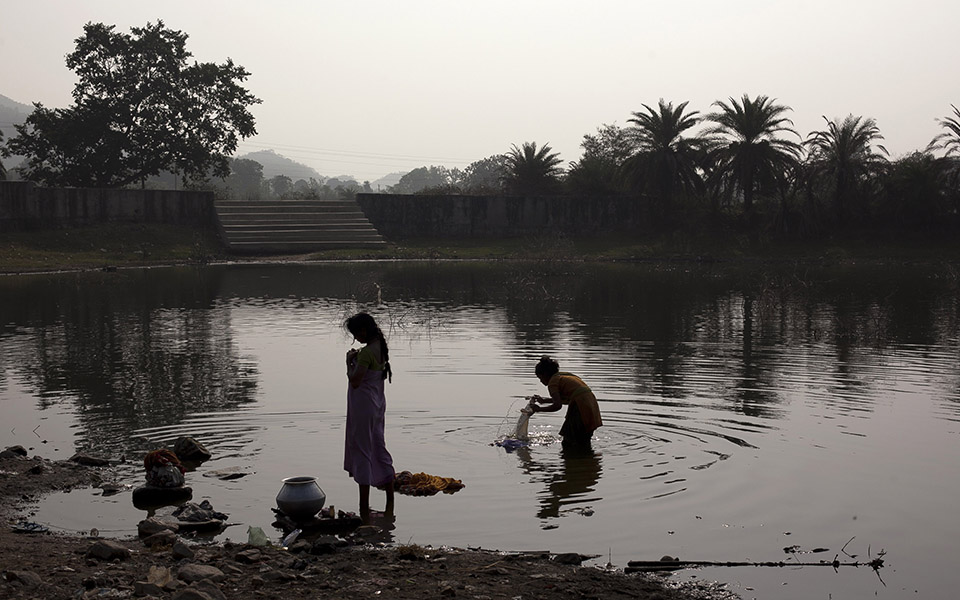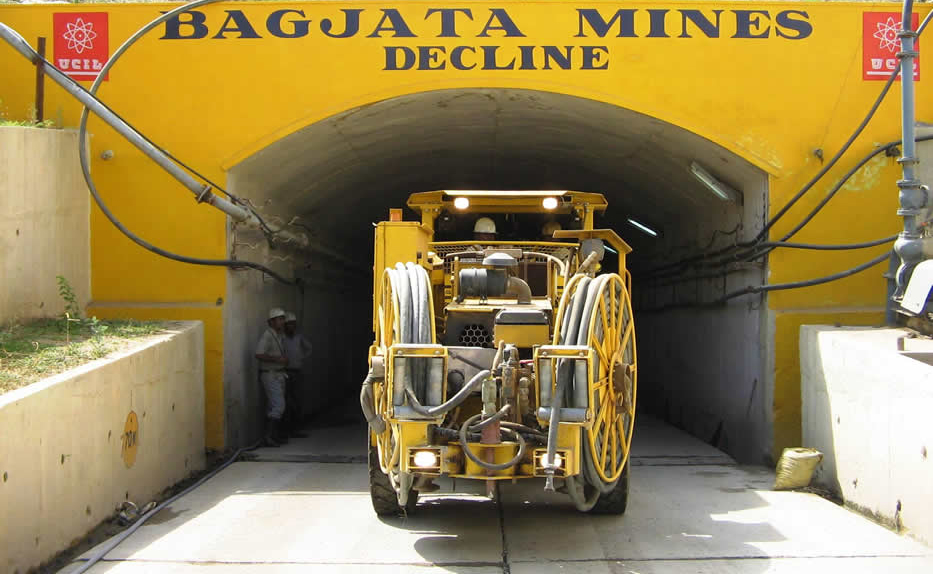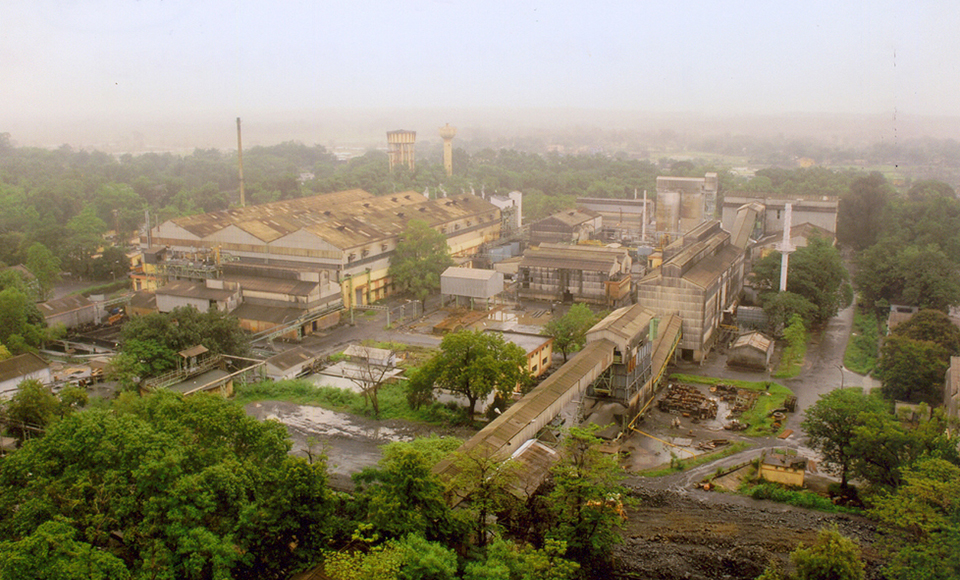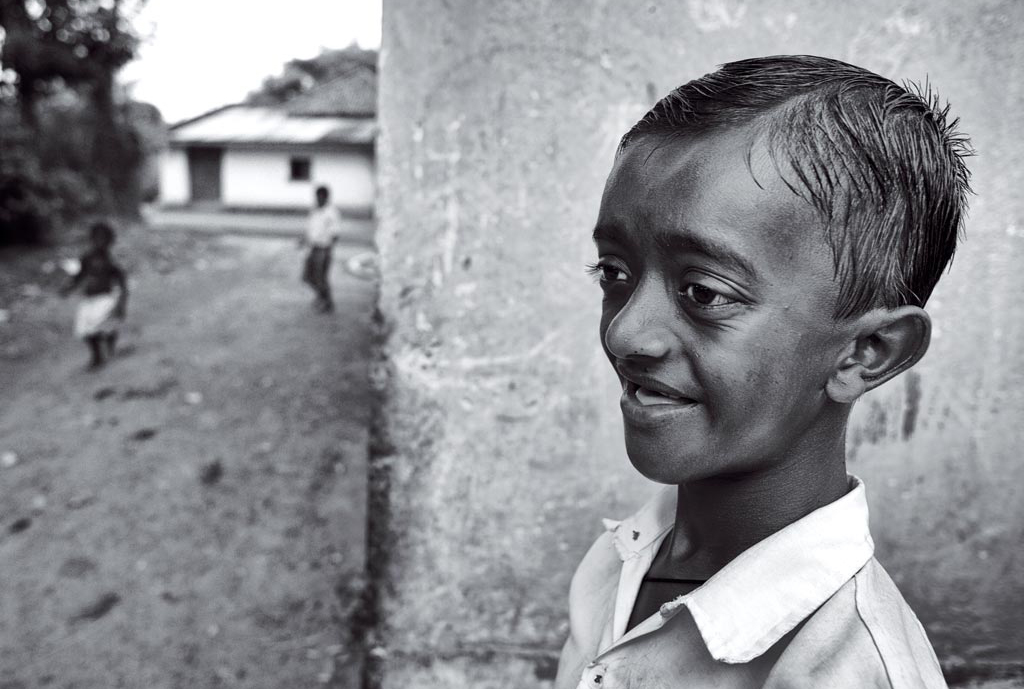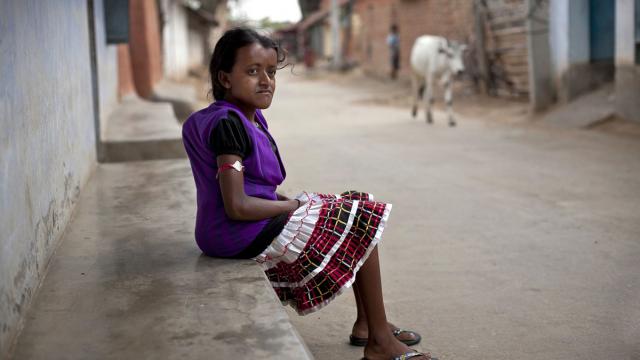
In 2011, Ashish Biruli, a journalist from Jadugora, about 850 miles southeast of New Delhi in the Indian state of Jharkhand, reported that people who had given their land to be mined with the promise of increasing the region's mineral wealth were instead rewarded with illness, disabled children and often death.
Little changed after Biruli's report – in fact, even after many reports like it were filed by intrepid journalists describing the ways Jadugora and its communities were being destroyed due to indiscriminate mining.
One of the accused companies, Uranium Corporation of India (UCIL), is licensed by the Indian government to mine the hills and land of Jadugora for precious uranium ore. Uranium’s high density makes it ideal material for airplane control surfaces and an important source of concentrated energy.
But mining with an eye only on profit, like in many other industries, has ensured malpractice by that company and others. In Jadugora, the generated radioactive waste was not disposed of safely and its pollution is having far reaching ramifications especially on the children of the area.
Child Victims
The land in Jadugora isn’t lush any more. Most of the trees have to cut down to facilitate the mining. The dust is fine and covers everything, including moving vehicles, like a gossamer sheet. But in many ways Jadugora seems similar to most rural areas in India – until you see the children.
Here, children are few. None try to outrun your car, their sturdy legs giving the vehicle healthy competition. Nor do they shout greetings. Jadugora’s children are unusually quiet. 75-year-old Birsu Munda explains, “My granddaughter was normal like any other baby, until at age one she developed this issue with her legs.”
She didn't speak a word until she was two. Now four years old, she only mumbles and stares vacantly as she drags herself along the ground.
Uranium Corp. states in its official material that “fear of radiation is essentially human made and mediated phenomenon by a small section of the media without checking out the facts.” But a Greenpeace report disputes the company's claims directly.
According to Greenpeace, in Jadugora the radiation is above the 0.25 sievert level that a person can absorb without ill effects becoming immediately visible. Uranium Corp. countered the report saying that “external gamma radiation, Radon concentration, suspended particulate matters, airborne long lived Alpha activity and concentration of radio nuclides-uranium and Radium in surface and ground water, in soil and food items etc are monitored regularly.”
But company officials didn’t respond to requests to explain what is done when monitoring reveals high levels of radiation. One thing is certain: work never stops. Munda, whose son and he both work at the mines, says they have never had an unscheduled day off.
And he isn't the only one whose outrage about the company's disastrous practice has fallen on deaf ears. In 2011, the journalist Biruli reported on a public hearing that featured children affected by the region's mining. They had requested a school close to the area where their parents worked to hold the hearing. Children spoke about their cases of illness, highlighting the ways their health had been ruined by the hazardous conditions posed by uranium mining. Many government officials were invited to attend, but only one came.
And since then, says Biruli, “the situation hasn’t changed.”
Killing Indigenous People
According to a recent Bloomberg report, “the health problems related to uranium mining are affecting the indigenous people disproportionately in and around the uranium mining operational area, with as many as 50,000 people at risk.”
The Bloomberg report referred to a High Court petition filed in February 2014 underlining the role that radioactive waste from uranium mines has played, putting about 50,000 people in Jharkhand’s Jadugora at risk. The petition stated that “the people, mostly tribal communities, suffer from serious radiation-related health problems. But the mines in East Singhbhum district continue without adequate safety measures.”
The petition also highlighted that the young population of Jadugora has been especially affected.
“The primarily tribal population in Jadugora is gradually sickening and dying,” says Suman Pathkar, a social activist. “The focus on profits is ruining not just their environment but their very way of life.”
Corporate Denials
Uranium Corp. doesn’t always issue denials. Instead, it releases a regular deluge of literature including statements like, “The various studies carried out by experts have proved beyond doubt that the diseases prevalent in the villages around UCIL workings are not due to radiation but attributed to malnutrition, malaria and unhygienic living conditions etc.”
And it’s not as if the issue hasn’t received political attention. The fifth Chief Minister of Jharkhand, Hemant Soren, brought the subject to the Planning Commission of India, the government body responsible for assessing resource use across the country. Soren went on record describing Jharkhand “as the worst sufferer of the after-affects of mining activities.”
Nonetheless, Uranium Corp. has steadfastly denied its role in the spread of radiation. Instead, it continues to claim that media have been responsible for spreading "myths," such as the assertion that "radiations are the main cause of diseases like cancer, TB, malaria etc prevalent in the region,” which the company says increases misconceptions and apprehension about industrialization across the country.
But Soren didn't forget the condition of children born with pollution-induced disabilities. In an interview with The Times of India in May, he said, “Children in many villages close to the uranium-bearing region are born with congenital disability, which is a matter of grave concern for the state.”
He highlighted other adverse effects from mining – displacement, damage to the environment, long-term effects on livelihood, and contamination of underground water sources. But India's national administration has proved that even if the Chief Minister of a State complains, he can ignored with élan.
Even as uranium mining kills the state of Jharkhand, India in the grip of promised growth is choosing to look away.
Follow the author Paromita Pain on the Commons or on twitter at @ParoP
3 WAYS TO SHOW YOUR SUPPORT
- Log in to post comments

